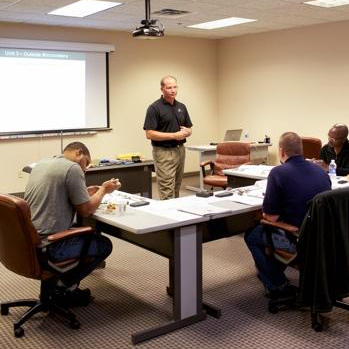To restate the point of our last blog post:
The skills gap experienced by manufacturing companies affects growth!
- The cost-of-turnover affects the bottom line.
- Lack of requisite skills affects productivity and innovation.
Based on the top challenges cited in the first post, two of the criticisms contributing to the problem were:
- Lack of management commitment to provide funding, time, and training; and
- Lack of awareness of what actions can be taken;
It’s never too late! What can you do about it?
 Growth demands investing in people! Competitive companies are beginning to understand that they need to make hiring skilled workers and upskilling their current workforce a top priority. The speed of innovation and change obsoletes the ‘can’t afford to train’ mentality for those companies who want to win. “Fully trained employees drive innovation. Trained workers can fully understand equipment and technology in order to improve processes and generate new ideas.”1
Growth demands investing in people! Competitive companies are beginning to understand that they need to make hiring skilled workers and upskilling their current workforce a top priority. The speed of innovation and change obsoletes the ‘can’t afford to train’ mentality for those companies who want to win. “Fully trained employees drive innovation. Trained workers can fully understand equipment and technology in order to improve processes and generate new ideas.”1
 Training Roadmaps and performance support are key learning development strategies. Metrics can be obtained to quantify the impact of training on the bottom line. Companies can substantiate the growth potential of supporting effective training.
Training Roadmaps and performance support are key learning development strategies. Metrics can be obtained to quantify the impact of training on the bottom line. Companies can substantiate the growth potential of supporting effective training.

Training Roadmaps align learning objectives with the required knowledge and skills. Support would follow a structured on-the-job training (OJT) program to ensure effectiveness of the training.
But first, senior management commitment is key to obtaining the resources needed to ‘champion a learning culture.’ Please refer to the article cited below for a detailed discussion of topics from these blog posts and description of Training Best Practices.
QC Training Partnership
If your company is facing a skills gap due to lack of continuous training, a partnership with QC Training will provide you with tailor-made solutions. Our company has helped employers train their staff for over 30 years. We have the expertise to build Training Roadmaps to help address and meet your current and future skills gap needs. Our Public classes address the basic needs of blueprint reading, GD&T, inspection techniques and analytical quality tools, and more.
Contact us to learn more about our training programs and commitment to effective training and ongoing support.
1TU_SME_Industry_Pulse_Report_Final.pdf, Tooling U| SME, 2018





